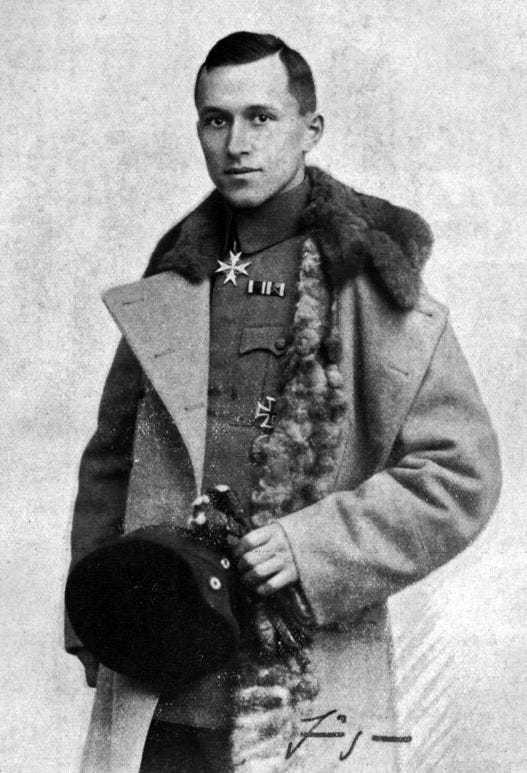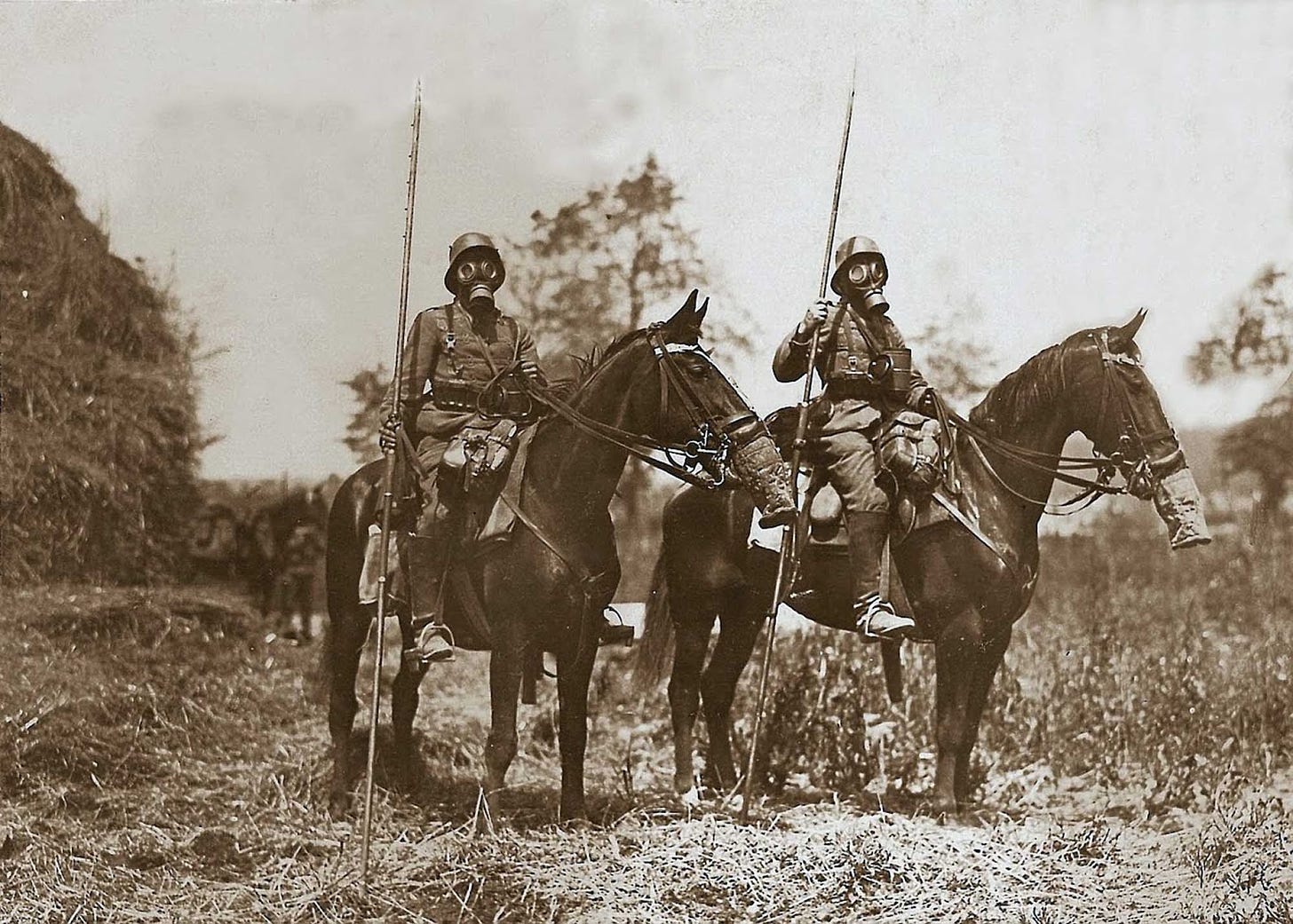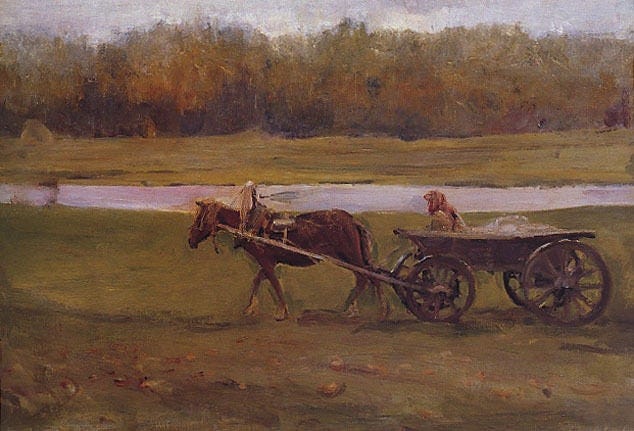“Above all— what was his attitude toward man, without whom all his work was meaningless? It originated in man and must return to him. A rose or a vine may be conceived without a trellis, but never the other way round. Did he want to dominate man, to paralyze him, or to lead him into fabulous realms? Was automation, in his eyes, an enormous experiment, a test to be passed, a question to be answered? I thought him capable of theoretical, even theological reflections; I had seen his library and had looked into his eyes.”1
In my World of Glass Bees essay a few weeks ago, I framed our life in postmodernity as a kind of confrontation with constructed reality. Using the position of the main protagonist, Captain Richards, I explored the psycho-social grounding of his decision to personal rebellion against the total regime of technological world-building that surrounded him. His analogy was a near perfect one, though I was left with the sense that I had not done the book justice. As one of Jünger's lesser known works, but my personal favorite, I thought “The Glass Bees” deserved a deeper dive than it received as a mere capstone to a discussion of narrative.
In my estimation, “The Glass Bees” also comprises the most politically reactionary of Jünger’s post-war works, and certainly of his novels. In it, Jünger richly engages with a central theme of his writing that would form a prime aspect of his vision in his later “Eumeswil;” the concept of the man outside of time, or man of a bygone age. Unlike in “Eumeswil,” however, where Martin Venator feels merely alienated by what he considers a post-value, unserious society, and where he considers men like his father to be hangers-on to a bygone era, in “The Glass Bees,” our Captain Richards sees himself as a living remnant, however undeserving, of that former era.
I was still one mass of useless and antiquated prejudices. Since everything was now supposed to be based on contract— which was founded neither upon oath nor atonement nor Man— trust and faith no longer existed. Discipline had vanished from the world. It had been replaced by the catastrophe. We were living in permanent unrest, and no one could trust anyone else. Was it my responsibility?2
Richards is, importantly, a beaten-down man. His virtues are precisely those things which draw him ire and suspicion for they are martial and aristocratic virtues, commitment to a world of form and duty which he went to battle for, and his self-deprecation is often a confrontation with his inability to assimilate into the new world of passive consumption and mere rent seeking.
“On top of everything, I felt ridiculous— I sensed that I was being old-fashioned, one of those people who still wasted their time with scruples, while all the others, who pocketed whatever profit was offered, looked down on me… [Why] should words like ‘government’ still be taken seriously? Did those figureheads have a monopoly, perhaps, on being serious? Were they an exception to the devaluation of words? Was there, in fact, a person still alive who could teach others the meaning of decency?”3
Throughout the novel, what Richards succeeds in cutting into the heart of is that what he is alienated by, precisely, is a replacement of the real world with a manufactured one. What alienates him is what alienates everyone— his past, creating his inability to cope, merely makes him a living image of what was lost. There’s no coincidence then that Captain Richards is a cavalry officer. In many ways he and his way of life are just like the horse.
Today these magnificent creatures [the horse] were doomed. They had disappeared from the fields and from the streets, from the villages and towns, and for years they had not been seen in combat. Everywhere they had been replaced by automatons. Corresponding to this change was a change in men; they had become more mechanical, more calculable, and often you hardly felt that you were among human beings. Only at rare moments did I still hear a sound from the past— the sound of bugles at sunrise and the neighing of horses, which made our hearts tremble. All that has gone.”4
In Richard’s perspective, there are two kinds of life for men: there is a spirited life— embodied, vital, real — and there is a widget-man’s life, constructed and compartmental. If Richards understands himself and his existence as contending against replacement by automata and robotism (the position of the postmodern man), he can understand it only because he was witness to the lost battle of the modern man, subsumed by machine power. For Richards, his confrontation with the longhoused reality of modern man comes in the form of one of his past mentors, a once great horseman by the name of Wittgrewe. Richards recognizes him as the conductor of a streetcar saying, “the sight upset me; I felt distressed, as if a free-roaming animal had been imprisoned in a cage and taught a few pitiful tricks. So this was the splendid Wittgrewe.”5 Following their encounter, Richards joined Wittgrewe in his city apartment. Joined as they drank by Wittgrewe’s silent, diminutive wife, Richards was struck by the utter lack of reference to their shared past. But this deflated, defeated Wittgrewe was not an image of one man but of a class of men.
“When we had been stationed in the Eastern Provinces, only young recruits from the villages joined us, sons of peasants and farmhands… The years in the cavalry were a treat for them. Later, more and more were absorbed by the big cities and ended up like Wittgrewe. They were hired to do piecework, which was beneath a man’s dignity. It could have been done just as well by a woman or a child, or even by a part of the machinery at which they worked.
What they had done in their youth, and what for millenniums had been man’s vocation, joy, and pleasure— to ride a horse, to plow in the morning the steaming field, to walk behind the oxen, to mow the yellow grain in the blazing summer heat while streams of sweat poured down the tanned body and the women who bound the sheaves could hardly keep in step with the mowers, to rest at noon for a meal in the shade of green trees— all this, praised by the poets since times immemorial, was now past and gone. Joy in labor had disappeared.
How can one explain this trend towards a more colorless and shallow life? Well, the work was easier, if less healthy, and it brought in more money, more leisure, and perhaps more entertainment. A day in the country is long and hard. And yet the fruits of their present life were worthless compared to a single coin of their former life: a rest in the evening and a rural festivity. That they no longer knew the old kind of happiness was obvious from the discontentment which spread over their features. Soon dissatisfaction, prevailing over all their other moods, became their religion. Where the sirens screamed, it was horrible. And soon there was hardly a corner left where the sirens could not be heard.”6
Jünger speaks here to a deep demoralization of the human spirit, the crisis of meaning and of color, as he puts it, which have been stripped away from man through the construction of an ever-more dense and ever-more sophisticated apparatus that surrounds his every move. The memitic of the bugman, the pod-liver, and the wage-cuck all come out of this feeling of containment and physical oppression in space. To be unseen, to be unsupervised, unmanaged is gone now. To be more than a tool but a source is gone now too. Jünger saw, too, who was lost most of all. A strong man like Richards could keep wading. A lucky woman like his wife, Theresa, who put her whole heart to loving him, could keep in her eye the image of the hero. But, the children knew not of what was lost.
“They had been born into an atmosphere of insecurity and had never known men with the absolute assurance of a Monteron[Richards’ mentor]. I could, therefore, realize better than they the measure of their threatened situation, their loneliness in the uncharted seas; their dreadful position on the brink of nothingness.”7
Like always, I am struck by the clarity with which Jünger saw the future. Even in 1957 when nanobots, AI, and the smartphone were yet so far away, Jünger saw so clearly the trajectory of deracination that modern man was living through, and the crippling loneliness of future young people, taken away from all space and time into the ever hyper-driven moment. And so did he, with that same clarity, predict their reactions. With a jarring prescience, he discussed the rise of artificial obsessions among young people, so perfectly capturing in his descriptions, the sickness of para-relationships we now see of young people and Anime and Otaku.
“The figures, it is true, still differed slightly from the human actors we are used to seeing, but they differed pleasantly; the faces were more brilliant, more flawless; the eyes of a larger cut, like precious stones; the movements slower, more elegant, and in moments of excitement even more violent and sudden than anything in our experience…. Thus one might say that these figures did not simply imitate the human form but carried it beyond its possibilities and dimensions….
The newspapers deplored the fate of a young man who had jumped into the Thames: he had taken Zapparoni’s leading puppet actress for a woman of flesh and blood and could not get over his disappointment. The management, expressing regrets, implied that it might not have been impossible for the fair robot maid to have responded to the young man’s courtship. He had acted too impulsively; he had not grasped the ultimate possibilities of technology.”8
The terror of this new regime comes to the fore when Richards is given the opportunity of a lifetime, to become the head of private security for his country’s most bizarre and eccentric tech-tycoon. Much of the book expounds on the tenseness of their interactions, of the intricate back and forth as they negotiate in spoken and unspoken terms, and on the reflections of the Captain before, during, and even after their meeting.
Next week, we will examine in more depth the embodied crisis of postmodernity in the second half of the novel. If you have a copy of the book, and you’d like to read along, this essay can be said to cover chapter’s 1-7. I hope you enjoy this short series and pick up your own copy of “The Glass Bees;” if nothing else, I hope the questions it raises for us do not escape your mind.
Junger, Ernst The Glass Bees, 1957 pg. 98
pg. 15
pg. 24-25
pg. 29-30
pg. 71
pg. 72-73
pg.77
p.178








I wonder, then, how to recover color or thumos (if you will) in every day life. For me - it is joy in my children and stretching myself physically and spiritually to be a better father, and undertaking unnecessary (strictly speaking) risk in motorcycling.
The everyman, however, is pressed on every side by vidya, MCU, porn, drugs, and all manner of things designed to hold his attention and attenuate his spirit.
There's a hidden neurology to this dynamic - the interplay between the distinct flavors of consciousness exhibited by the two hemispheres of the brain. The machine world we have constructed with technoscience artificially suppresses the right hemisphere, as surely as if transcranial magnetic stimulation were simulating a stroke. With it we lose access to mythos, to the embodied world, to the fountain of creation, and are left only with the sterile prison of control for control's sake.